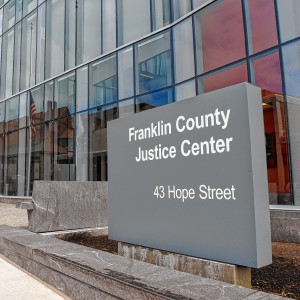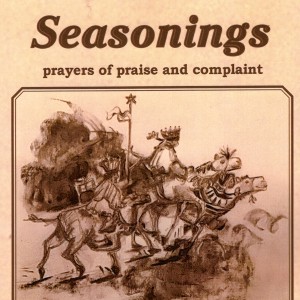Faith Matters: The reason for the cross
| Published: 08-31-2018 3:14 PM |
Anyone with basic knowledge of Christianity has heard the Gospel message, that Jesus died on the cross for the sins of the world. It is written in I Corinthians 15:3-4 “Christ died for our sins according to the scriptures; and that He was buried, and that He rose again the third day according to the scriptures.”
So the key reason why Jesus Christ died on the cross was due to sin. That’s the simple Gospel message, and the reason for the cross. Now here is some theology. What happens, if what God describes as sin in the Bible, is no longer recognized as sin by people today? Wouldn’t redefining sin directly affect the reason for the cross? The word “confess” in Greek is “homologeo” and it means “to say the same thing.” In other words, to confess one’s sins to God is to say the same thing about a sin as God does, thus agreeing with God that what you did was wrong.
The Bible teaches confession is necessary to receive God’s promised forgiveness made possible by the cross.
I John 1:7b-9 “The blood of Jesus Christ, His Son, cleanses us from all sin. If we say that we have no sin we deceive ourselves, and the truth is not in us. If we confess our sins, He is faithful and just to forgive us our sins, and to cleanse us from all unrighteousness.”
If what God calls sin is no longer considered sin, then the reason for Christ dying becomes determined by the present day conscience, and not by God, as given in His Word. And if that is true, then the confessing of sins becomes by definition an empty thing, for it is no longer saying the same thing as God about what sin is. Therefore, Christ dying for our sins, and the confessing of our sins to God to receive God’s forgiveness, only makes sense, if sin is viewed and defined from God’s perspective as given in the Bible. Otherwise, to not agree with God about sin questions the very reason for the cross and results in sins not being confessed, which provides no basis for God’s promised forgiveness.
Jesus made an amazing declaration just before He died. He cried out “teleo,” which is often translated “it is finished.” (John 19:30) The Greek word “teleo” is used in various settings throughout the New Testament. In a financial context, it meant something was “paid in full.” The word was also used to describe prophesies being “completely fulfilled.” So when Jesus cried out on the cross, “it is finished,” He was declaring that the payment for sin, which was the reason for the cross, was at that moment “paid in full.” The work or deed that was required for the saving of souls was “completely fulfilled” at that moment by Jesus on the cross.
Here is another theological thought directly related to these words of Jesus. What happens if we inject into what Christ did on the cross the idea that religious efforts are necessary today to make what Jesus accomplished effective, so a person can receive forgiveness? Let’s say, for example, that baptism was taught to be necessary for sins to be cleansed. If we add a present day action or deed to the work of the cross, how does that affect the words of Jesus on the cross when He said “paid in full” or “it is finished?” If I’m given a list of deeds to perform to benefit from what Jesus did on the cross, then am I not saying the work required for sins to be cleansed and forgiven was never actually “teleo,” or completely fulfilled as Jesus said. Now, if receiving cleansing and forgiveness by the cross was a matter only of the heart and mind, without any works or deeds added, or in other words, receiving Jesus’ sacrifice through belief or faith as stated in John 1:12, such an approach would allow for the word “teleo” to maintain its meaning.
Faith means to be persuaded or convinced by the voice of God through the hearing of His word, the Bible. The reason for the cross, based on the words of Jesus from the cross, “it is finished,” is this: Jesus completely accomplished for sinners what they could never do for themselves, which was, He paid the price for their sins. (Galatians 1:6-9)

 Greenfield man arrested in New York on murder charge
Greenfield man arrested in New York on murder charge Former Leyden police chief Daniel Galvis charged with larceny
Former Leyden police chief Daniel Galvis charged with larceny Judge dismisses case against former Buckland police chief
Judge dismisses case against former Buckland police chief Greenfield Police Logs: April 9 to April 17, 2024
Greenfield Police Logs: April 9 to April 17, 2024 Millers Meadow idea would ‘completely transform’ Colrain Street lot in Greenfield
Millers Meadow idea would ‘completely transform’ Colrain Street lot in Greenfield Greenfield’s Court Square to remain open year-round for first time since 2021
Greenfield’s Court Square to remain open year-round for first time since 2021 Speaking of Nature: Indulging in eye candy: Finally, after such a long wait, it’s beginning to look like spring is here
Speaking of Nature: Indulging in eye candy: Finally, after such a long wait, it’s beginning to look like spring is here Celebrating ‘Seasonings’: New book by veteran preacher and poet, Allen ‘Mick’ Comstock
Celebrating ‘Seasonings’: New book by veteran preacher and poet, Allen ‘Mick’ Comstock Faith Matters: How to still the muddy waters of overthinking: Clarity, peace and God can be found in the quiet spaces
Faith Matters: How to still the muddy waters of overthinking: Clarity, peace and God can be found in the quiet spaces A time for every purpose under heaven: Free sing-a-long Pete Seeger Fest returns to Ashfield, April 6
A time for every purpose under heaven: Free sing-a-long Pete Seeger Fest returns to Ashfield, April 6
